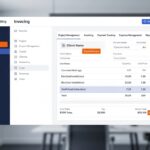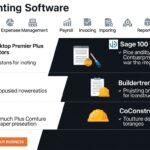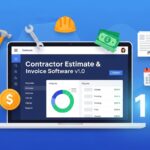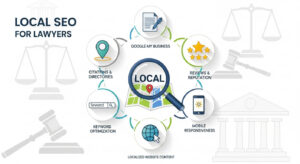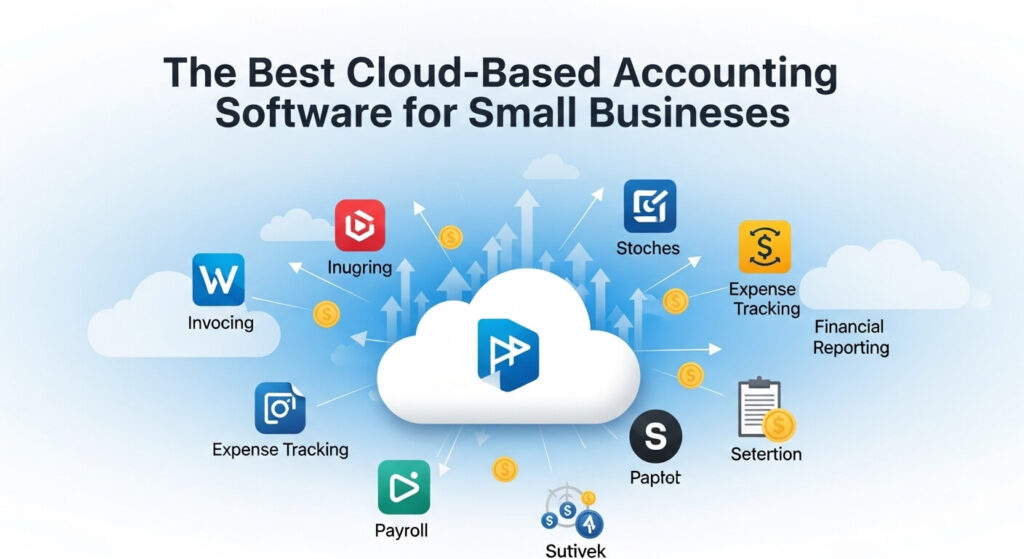
The Best Cloud-Based Accounting Software for Small Businesses
Do you spend too much time on paperwork, trying to keep your books straight? Many small business owners struggle with old-school accounting methods. These ways are slow, often lead to mistakes, and make it hard to see your money situation clearly. It’s a common headache, but there’s a better path. Cloud-based accounting software offers a fresh, modern solution to these money worries.
This kind of software changes how you manage your business finances. Imagine checking your accounts from anywhere, working with your team easily, and letting computers handle the boring parts. Cloud accounting brings these benefits: easy access, great teamwork, automatic tasks, room to grow, and strong security for your financial data. It truly updates your money management.
This guide will help you find the right cloud accounting software for your small business. We will look at key features, what they cost, and which option fits different business types. Our goal is to make choosing simple, so you can pick the best tool for your financial health.
Why Cloud-Based Accounting Helps Small Businesses
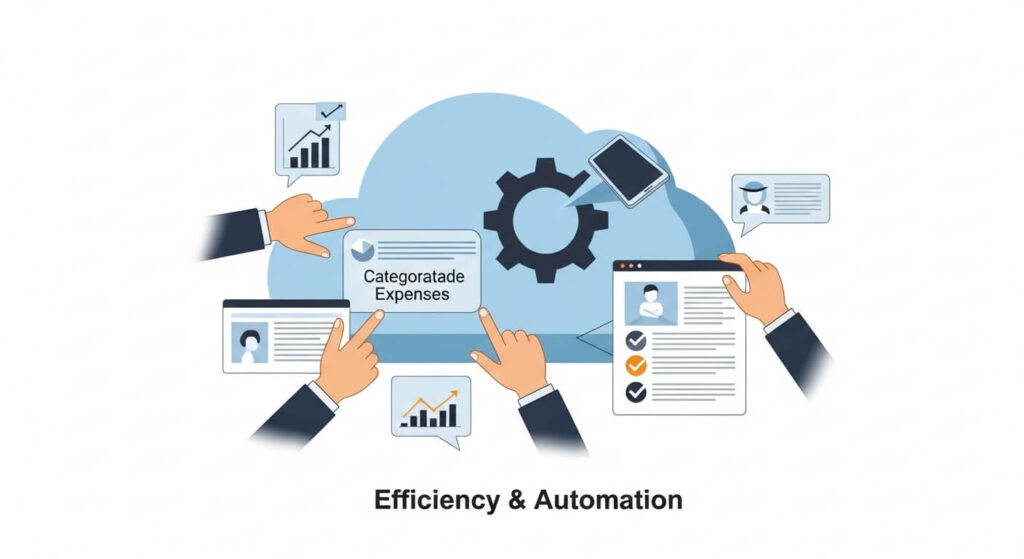
Accessibility and Flexibility
Access Your Finances Anytime, Anywhere
Cloud accounting breaks down office walls. You can check your business finances from any device with an internet connection. This means managing your books from your home office, a coffee shop, or even while traveling. It’s perfect for remote workers and busy owners who are often on the go. You stay connected to your money matters no matter where you are.
Real-Time Financial Data
Getting up-to-date money information helps you make smart choices. Cloud software keeps your financial data current, often linking directly to your bank. This gives you a clear picture of your income and expenses right now. Knowing your true financial standing helps you act quickly and plan better for the future.
Enhanced Collaboration and Integration
Streamlined Teamwork with Accountants and Staff
Working together on finances becomes simple with cloud software. You can give your accountant or team members access to the books without sending files back and forth. Features like multi-user access and role-based permissions ensure everyone sees only what they need to. This shared view makes financial tasks easier for everyone.
Integration with Other Business Tools
Most cloud accounting programs connect with other tools you already use. Think about your customer relationship management (CRM) system, payroll services, or inventory tracking. These connections let your different business tools talk to each other. This saves you from entering the same information in multiple places, making everything run smoother. (Find out how to choose the right payroll software for your team in our other post.)
Automation and Efficiency
Automating Tedious Tasks
Imagine not having to do the same boring money tasks over and over. Cloud software can automate many of these. It can send out invoices, set up recurring payments, and even match your bank transactions. This frees up your time to focus on growing your business instead of manual bookkeeping.
Reduced Human Error
Manual data entry is often a source of mistakes. When you type numbers by hand, it’s easy to make small errors that cause big problems later. Automation helps fix this. By handling repetitive tasks, cloud accounting software greatly reduces the chance of human error. Your financial records become much more accurate.
Security and Scalability
Robust Data Security Measures
Many worry about keeping their data safe in the cloud. Top cloud accounting providers use strong security steps to protect your information. They use encryption, perform regular backups, and store data in highly secure data centers. These systems often meet strict industry security standards, giving you peace of mind.
Growing with Your Business
As your business gets bigger, your accounting needs will change. Most cloud software offers different plans to match your growth. You can start with a basic plan and easily move up to one with more features or higher transaction limits. This means your accounting system can grow right along with your business without needing a complete overhaul.
Key Features to Look For in Cloud Accounting Software
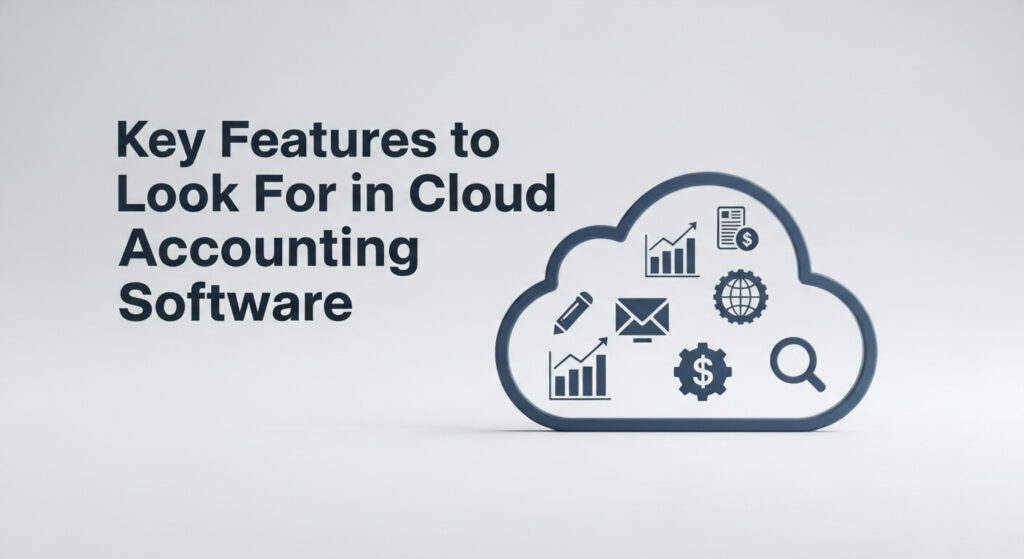
Core Accounting Functions
Invoicing and Billing
Every business needs to get paid. Look for software that lets you create professional, custom invoices. It should also handle recurring billing for regular clients. Good systems send payment reminders and often let customers pay you online directly through the invoice.
Expense Tracking and Management
Keeping track of what you spend is vital. The best software helps you scan receipts, neatly categorize your expenses, and manage bill payments. Some even track mileage if you or your team travel for work. This makes tax time much simpler.
Bank Reconciliation
Connecting your bank account to your accounting software is a must. The system should automatically pull in transactions and help you match them to your records. This process, called bank reconciliation, finds any errors or missing entries quickly. It ensures your books truly match your bank statements.
Reporting and Analytics
Financial Statement Generation
Understanding your business health comes from clear reports. Good software can instantly generate key financial statements. These include your Profit and Loss (P&L) statement, Balance Sheet, and Cash Flow Statement. They show you where your money comes from and where it goes.
Customizable Dashboards and Reports
Every business wants to see different things. Look for software that offers customizable dashboards. These give you a quick visual summary of your key money numbers. You should also be able to build custom reports to get specific insights important to your business.
User Experience and Support
Intuitive Interface
You don’t need to be an accountant to use these tools. The best software has an interface that is easy to understand and navigate. Look for clear menus and simple steps to complete tasks. A user-friendly system saves you time and frustration.
Customer Support and Resources
Even easy-to-use software needs support sometimes. Check for what kind of help is available. This might include live chat, phone support, or email. Good providers also offer online knowledge bases and video tutorials to help you learn on your own.
Top Cloud-Based Accounting Software for Small Businesses: A Comparative Overview
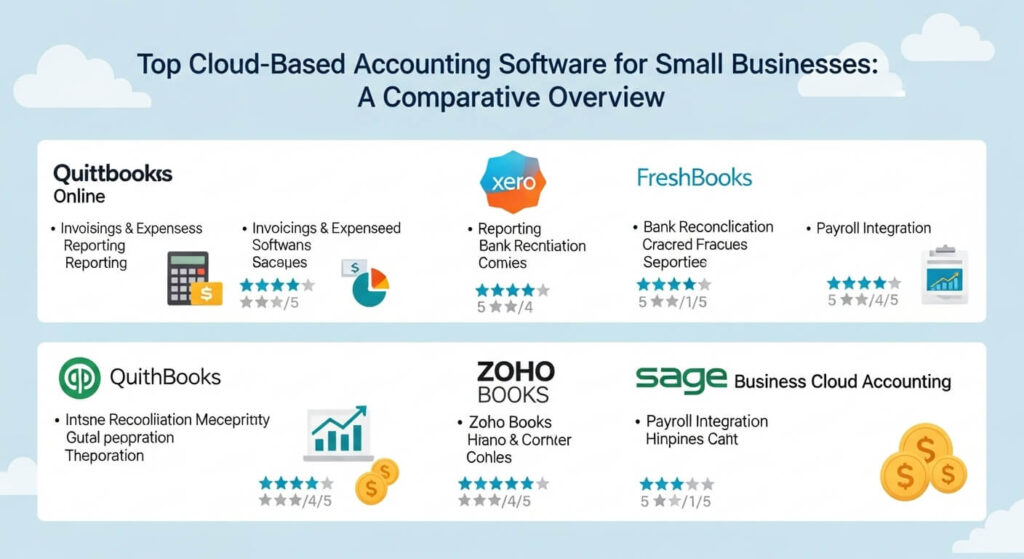
Choosing the right tool depends on your specific business. Here’s a look at some popular choices, based on expert analysis and user reviews.
QuickBooks Online
QuickBooks Online is a very popular choice. It offers a wide range of features that grow with your business. Many accountants are familiar with it, which can make things easier come tax season.
- Best for: Businesses of all sizes that need robust features and many connections to other apps.
Xero
Xero is known for its clean, simple look and feel. Users often praise its strong bank connections and how easy it is to work with others. It also handles different currencies well.
- Best for: Growing businesses, those who value ease of use, and companies with international clients.
Zoho Books
Zoho Books is part of a larger set of business tools. It even has a solid free plan for very small businesses. If you already use other Zoho products, this integrates smoothly.
- Best for: Startups, freelancers, and businesses that already use other Zoho apps.
FreshBooks
FreshBooks stands out for service-based businesses. It has excellent tools for sending invoices and tracking time spent on projects. It simplifies billing clients for your work.
- Best for: Freelancers, consultants, and agencies that bill for time and services.
Wave
Wave offers a completely free option for basic accounting, invoicing, and receipt scanning. It is a good choice if you have very simple needs and a tight budget.
- Best for: Solopreneurs and very small businesses with limited accounting requirements.
How to Choose the Right Cloud Accounting Software
Assess Your Business Needs and Budget
Identify Essential Features
Before you look at software, list what your business absolutely needs. Do you require inventory management? What about project costing? Knowing your non-negotiable features will narrow down your choices quickly. Make sure the software can do what you need most.
Determine Your Budget
Consider how much you are willing to spend each month or year. Think about the subscription costs and any extra fees for add-ons. Remember, the right software is an investment that can save you money and time in the long run. Look at the return you get from these tools.
Consider Ease of Use and Support
Trial Periods and Demos
Most good software offers a free trial or a demo. Use these to test how the system works. See if the interface feels natural and if you can easily find what you need. It is important that you and your team feel comfortable using it daily.
Accountant Recommendations
Your accountant is a valuable resource. They might have a preferred software they know well. Using a system your accountant is familiar with can make their job easier and potentially save you money on bookkeeping fees. Ask for their input before you decide.
Evaluate Integration Capabilities
Compatibility with Existing Tools
Think about the other software your business relies on. Does the accounting software connect easily with your CRM, payroll system, or e-commerce platform? Smooth data flow between your tools prevents manual data entry and errors.
Future Integration Needs
Consider what your business might need as it grows. Will you add new tools or services in the future? Choosing software that can integrate with many different platforms means you will not be limited later on. It keeps your options open.
Actionable Tips for Implementing Cloud Accounting Software
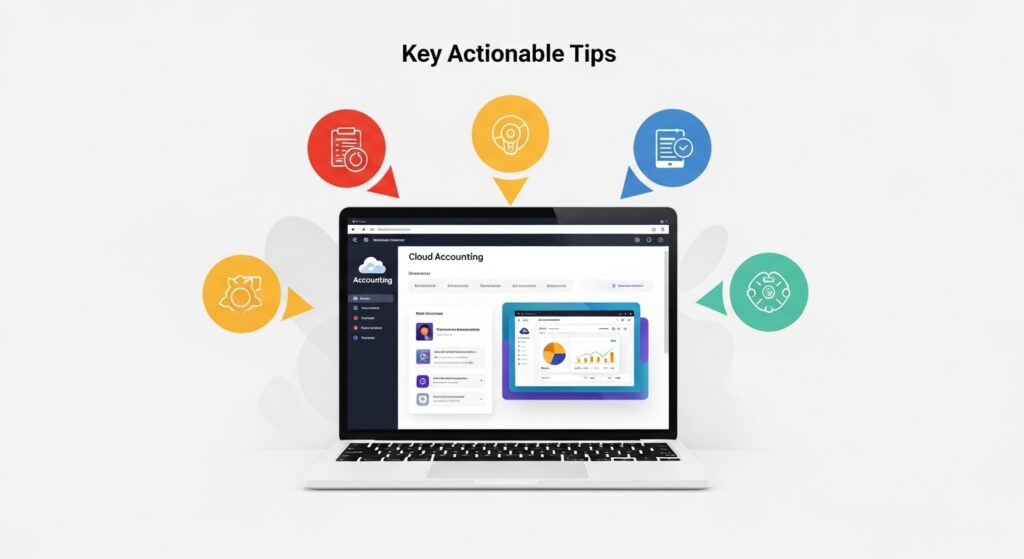
Plan Your Data Migration
Moving your financial data from your old system to a new one needs careful planning. Take the time to transfer all your existing information accurately. This includes customer lists, supplier details, and past financial transactions. A clean transfer makes for a smooth start.
Train Your Team
Even the best software won’t help if your team doesn’t know how to use it. Provide proper training for everyone who will access the system. This ensures they understand how to record expenses, send invoices, and pull reports correctly. Good training prevents mistakes and increases efficiency.
Set Up Bank Feeds and Automations Correctly
Take the time during setup to correctly link your bank accounts and set up any automatic rules. Accurate initial setup for bank feeds and other automations is key to getting the most out from your new system. It saves a lot of time and hassle later.
Regularly Review and Reconcile
Cloud accounting makes things easy, but you still need to keep an eye on your books. Regularly review your transactions and reconcile your bank accounts. This ensures everything is accurate and helps you spot any errors or fraud quickly. Staying on top of things keeps your finances healthy.
Conclusion
Cloud-based accounting software truly transforms how small businesses manage their money. It brings powerful benefits like easy access from anywhere, accurate real-time insights, and less time spent on manual tasks. Adopting these tools makes your business finances more organized and efficient.
Picking the right software is a smart investment in your company’s financial well-being and future success. With so many options available, choosing can seem tough. Start your research with this guide, focusing on your specific needs, budget, and desired features. A good choice today sets your business up for strong financial growth tomorrow.
Key Takeaways:
- Cloud accounting gives you unmatched access and a clear, real-time view of your money.
- Automating tasks is vital for saving time and cutting down on mistakes.
- When choosing software, put features, ease of use, and integrations first.
- The right system helps you make better business decisions and supports your growth.

